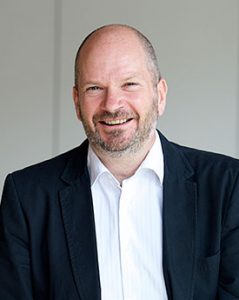 Simon Bainbridge [Speaker at the Mobile Utopia Bonfire School] is a Professor in the Department of English and Creative Writing at Lancaster University His main research interest is in the relationship between the writing of the Romantic period and its historical contexts. He is currently continuing his research into the cultural responses to the Revolutionary and Napoleonic Wars and also working on the literature and culture of mountaineering in the Romantic period.
Simon Bainbridge [Speaker at the Mobile Utopia Bonfire School] is a Professor in the Department of English and Creative Writing at Lancaster University His main research interest is in the relationship between the writing of the Romantic period and its historical contexts. He is currently continuing his research into the cultural responses to the Revolutionary and Napoleonic Wars and also working on the literature and culture of mountaineering in the Romantic period.
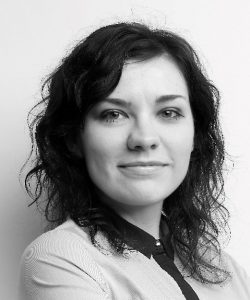 Zofia Bednarowska [Mobile Utopia Bonfire School and Experiment] is visiting PhD student at the Centre for Mobilities Research, Department of Sociology, Lancaster University from the Department of Sociology, Economy, Education and Methods of Social Research at the Institute of Sociology at the Jagiellonian University in Kraków. Researcher in Centre for Evaluation and Analysis of Public Policies of the Jagiellonian University. Her research interests are focused on consumer behaviour theory, sociology of space, spatial analysis, in particular spatial statistics, geostatistics, data visualisation, and also test pricing, methodology of market research in social and consumer behaviour analysis.
Zofia Bednarowska [Mobile Utopia Bonfire School and Experiment] is visiting PhD student at the Centre for Mobilities Research, Department of Sociology, Lancaster University from the Department of Sociology, Economy, Education and Methods of Social Research at the Institute of Sociology at the Jagiellonian University in Kraków. Researcher in Centre for Evaluation and Analysis of Public Policies of the Jagiellonian University. Her research interests are focused on consumer behaviour theory, sociology of space, spatial analysis, in particular spatial statistics, geostatistics, data visualisation, and also test pricing, methodology of market research in social and consumer behaviour analysis.
 Paula Bialski [Mobile Utopia Experiment] is a Lecturer at the Centre for Digital Cultures (CDC),Leuphana University, Lueneburg, Germany. She is an ethnographer of new media in everyday life, looking at contexts of usage as well as production, and I frame my research within cultural, social and media theory in general, and science and technology studies in particular.
Paula Bialski [Mobile Utopia Experiment] is a Lecturer at the Centre for Digital Cultures (CDC),Leuphana University, Lueneburg, Germany. She is an ethnographer of new media in everyday life, looking at contexts of usage as well as production, and I frame my research within cultural, social and media theory in general, and science and technology studies in particular.
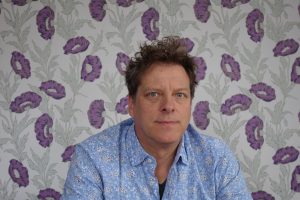 Gerhard Boomgaarden [Mobile Utopia Bonfire School] Academic Publisher for Routledge with wide-ranging interests across social sciences and humanities. Commissioning and developing content and products ranging from electronic, textbooks, reference, research to factual trade.
Gerhard Boomgaarden [Mobile Utopia Bonfire School] Academic Publisher for Routledge with wide-ranging interests across social sciences and humanities. Commissioning and developing content and products ranging from electronic, textbooks, reference, research to factual trade.
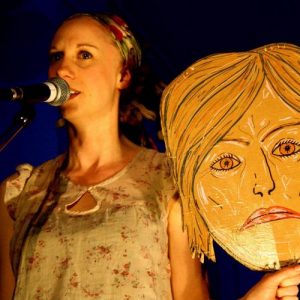 Tessa Buddle [Mobile Utopia Bonfire School and Experiment] is a practice-as-research PhD student at The University of Glasgow, undertaking an AHRC-funded studentship researching utopianism in contemporary theatre. Tessa has been exploring utopian theatre-making for all of her professional career, working with such utopians as The People Show and Welfare State International when she was an emerging artist at Hope Street Limited, and going on to be a founding member of Liverpool-based theatre collective The Suitcase Ensemble, with whom she has been a core performer/deviser and dramaturg for 8 years.
Tessa Buddle [Mobile Utopia Bonfire School and Experiment] is a practice-as-research PhD student at The University of Glasgow, undertaking an AHRC-funded studentship researching utopianism in contemporary theatre. Tessa has been exploring utopian theatre-making for all of her professional career, working with such utopians as The People Show and Welfare State International when she was an emerging artist at Hope Street Limited, and going on to be a founding member of Liverpool-based theatre collective The Suitcase Ensemble, with whom she has been a core performer/deviser and dramaturg for 8 years.
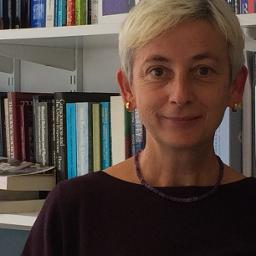 Monika Büscher [Mobile Utopia Bonfire School and Experiment] is Professor of Sociology at Lancaster University, UK. She is Director of the Centre for Mobilities Research and Associate Director at the Institute for Social Futures. Her research explores the digital dimension of contemporary ‘mobile lives’ with a focus on IT ethics and risk governance (BRIDGE, SecInCoRe), drawing on mobilities research, phenomenology, ethnomethodology, science and technology studies, feminist and non-representational theory, and design research. She has published many articles and books, including Ethnograpies of Diagnostic Work, Mobile Methods and Design Research. Synergies from Interdisciplinary Perspectives. She edits the book series Changing Mobilities (Routledge) with Peter Adey.
Monika Büscher [Mobile Utopia Bonfire School and Experiment] is Professor of Sociology at Lancaster University, UK. She is Director of the Centre for Mobilities Research and Associate Director at the Institute for Social Futures. Her research explores the digital dimension of contemporary ‘mobile lives’ with a focus on IT ethics and risk governance (BRIDGE, SecInCoRe), drawing on mobilities research, phenomenology, ethnomethodology, science and technology studies, feminist and non-representational theory, and design research. She has published many articles and books, including Ethnograpies of Diagnostic Work, Mobile Methods and Design Research. Synergies from Interdisciplinary Perspectives. She edits the book series Changing Mobilities (Routledge) with Peter Adey.
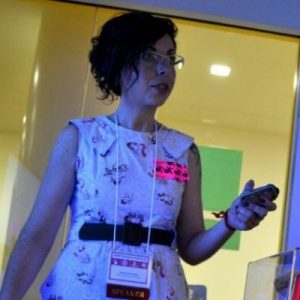 Fernanda da Costa Portugal Duarte Fernanda da Costa Portugal Duarte [Mobile Utopia Conference, Mobile Utopia Bonfire School and Experiment] holds a PhD in Communication, Rhetoric and Digital Media from North Carolina State University. She is editor of Mobility and Art for Transfers, an interdisciplinary journal for mobility studies, an Associate Professor in the Department of Communication and a Researcher at the Intermedia Connections Research Group (NucCon) at the Federal University of Minas Gerais, in Brazil. Fernanda is a digital media researcher and practitioner with a deep interest in emerging technologies, in ways to appropriate/subvert their functional uses and what we can learn about ourselves based on how we relate to these technologies.
Fernanda da Costa Portugal Duarte Fernanda da Costa Portugal Duarte [Mobile Utopia Conference, Mobile Utopia Bonfire School and Experiment] holds a PhD in Communication, Rhetoric and Digital Media from North Carolina State University. She is editor of Mobility and Art for Transfers, an interdisciplinary journal for mobility studies, an Associate Professor in the Department of Communication and a Researcher at the Intermedia Connections Research Group (NucCon) at the Federal University of Minas Gerais, in Brazil. Fernanda is a digital media researcher and practitioner with a deep interest in emerging technologies, in ways to appropriate/subvert their functional uses and what we can learn about ourselves based on how we relate to these technologies.
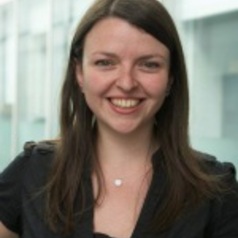 Catherine Easton [Mobile Utopia Experiment] is Senior Lecturer in the School of Law at Lancaster University. Her research interests focus upon internet governance, domain name regulation, intellectual property, access to technology and human/computer interaction. Dr Easton also carries out research on teaching law with technology.
Catherine Easton [Mobile Utopia Experiment] is Senior Lecturer in the School of Law at Lancaster University. Her research interests focus upon internet governance, domain name regulation, intellectual property, access to technology and human/computer interaction. Dr Easton also carries out research on teaching law with technology.
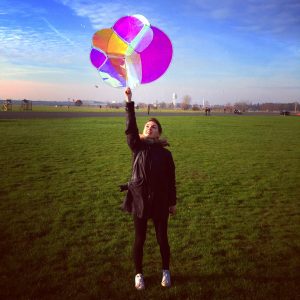 Sasha Engelman [Mobile Utopia Experiment] is a creative geographer at Royal Holloway University. She explores experiments with atmosphere, the elemental, and the politics of sensing. More specifically she uses para-ethnographic methods and critical description to participate in the elaboration of the GeoHumanities, especially around topics of art-science collaboration, transdisciplinarity, multispecies sympoietics and aesthetics. In recent writing she has employed process philosophy and feminist science studies to consider how adventurous and collective sensing practices summon novel dispositions to matter, energy and the environment.
Sasha Engelman [Mobile Utopia Experiment] is a creative geographer at Royal Holloway University. She explores experiments with atmosphere, the elemental, and the politics of sensing. More specifically she uses para-ethnographic methods and critical description to participate in the elaboration of the GeoHumanities, especially around topics of art-science collaboration, transdisciplinarity, multispecies sympoietics and aesthetics. In recent writing she has employed process philosophy and feminist science studies to consider how adventurous and collective sensing practices summon novel dispositions to matter, energy and the environment.
 Melissa Fernández Arrigoitia [Mobile Utopia Bonfire School] is a Lecturer in Urban Futures (Institute for Social Futures), based jointly in the Department of Sociology and LICA (Lancaster Institute of Contemporary Arts). Her research interests include: urban futures and transformations in the global North and South, urban housing production, destruction and resettlements, alternative home futures and collaborative, community-led practices, socio-material and geopolitical dimensions of urban belonging and othering, urban crisis, austerity and dispossession, human geographies and emotional geographies of home and architecture, feminist and postcolonial geopolitics, ethnographic, participative and experimental methodologies.
Melissa Fernández Arrigoitia [Mobile Utopia Bonfire School] is a Lecturer in Urban Futures (Institute for Social Futures), based jointly in the Department of Sociology and LICA (Lancaster Institute of Contemporary Arts). Her research interests include: urban futures and transformations in the global North and South, urban housing production, destruction and resettlements, alternative home futures and collaborative, community-led practices, socio-material and geopolitical dimensions of urban belonging and othering, urban crisis, austerity and dispossession, human geographies and emotional geographies of home and architecture, feminist and postcolonial geopolitics, ethnographic, participative and experimental methodologies.
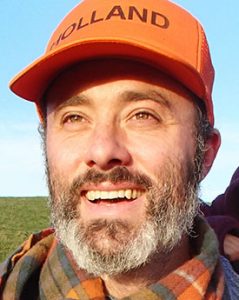 Adam Fish is cultural anthropologist, video producer, and senior lecturer in the Sociology Department at Lancaster University. He employs ethnographic and creative methods to investigate how media technology and political power interconnect. Using theories from political economy and new materialism, he examines digital industries and digital activists.
Adam Fish is cultural anthropologist, video producer, and senior lecturer in the Sociology Department at Lancaster University. He employs ethnographic and creative methods to investigate how media technology and political power interconnect. Using theories from political economy and new materialism, he examines digital industries and digital activists.
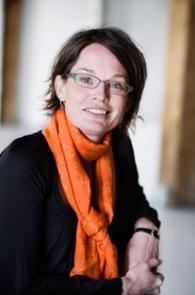 Malene Freudendal-Pedersen [Mobile Utopia Bonfire School and Experiment] is Associate Professor at the Department for People and Technology, Roskilde University: “My research focuses on mobilities in late modern everyday life. With a point of departure in transport research I examine why and how we choose specific modes of transport in everyday life and the meaning and significance this has for lived life. Mobility behavior can not be understood though, from a narrow understanding of everyday life when it is produced and reproduced on multiple societal scales. Thus of big importance to my research is also looking at sustainable mobility as a possible future utopia.”
Malene Freudendal-Pedersen [Mobile Utopia Bonfire School and Experiment] is Associate Professor at the Department for People and Technology, Roskilde University: “My research focuses on mobilities in late modern everyday life. With a point of departure in transport research I examine why and how we choose specific modes of transport in everyday life and the meaning and significance this has for lived life. Mobility behavior can not be understood though, from a narrow understanding of everyday life when it is produced and reproduced on multiple societal scales. Thus of big importance to my research is also looking at sustainable mobility as a possible future utopia.”
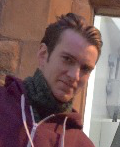 Iain Goddard [Mobile Utopia Bonfire School and Experiment] is a PhD researcher studying in the DEMAND Centre at Lancaster University since 2015. As a student of geography with an interest in mobility, his postgraduate research explores car use and its reconfiguration through developments in communication technologies. Currently, he is examining multiple variants of organised shared vehicle use (or ‘ride-sharing’) in the UK, including online ride-sharing, workplace carpools, and shared ride-sourcing. In keeping with the DEMAND Centre’s distinctive approach this work adopts a perspective based on theories of social practices.
Iain Goddard [Mobile Utopia Bonfire School and Experiment] is a PhD researcher studying in the DEMAND Centre at Lancaster University since 2015. As a student of geography with an interest in mobility, his postgraduate research explores car use and its reconfiguration through developments in communication technologies. Currently, he is examining multiple variants of organised shared vehicle use (or ‘ride-sharing’) in the UK, including online ride-sharing, workplace carpools, and shared ride-sourcing. In keeping with the DEMAND Centre’s distinctive approach this work adopts a perspective based on theories of social practices.
 Julia Hildebrand [Mobile Utopia Bonfire School and Experiment] is a PhD candidate in Communication, Culture, and Media and Research Assistant at the Center for Mobilities Research and Policy at Drexel University, USA. For her dissertation, Julia explores the recreational and artistic uses of consumer drones in the United States along with the socio-cultural implications of the aerial technology.
Julia Hildebrand [Mobile Utopia Bonfire School and Experiment] is a PhD candidate in Communication, Culture, and Media and Research Assistant at the Center for Mobilities Research and Policy at Drexel University, USA. For her dissertation, Julia explores the recreational and artistic uses of consumer drones in the United States along with the socio-cultural implications of the aerial technology.
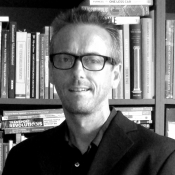 Ole B Jensen [Mobile Utopia Bonfire School and Experiment] is Professor of Urban Theory/Urban Design at the Department of Architecture, Design and Media Technology, Aalborg University, Denmark. His main research interests are mobilities theories, urban design, networked technologies, and urban theory.
Ole B Jensen [Mobile Utopia Bonfire School and Experiment] is Professor of Urban Theory/Urban Design at the Department of Architecture, Design and Media Technology, Aalborg University, Denmark. His main research interests are mobilities theories, urban design, networked technologies, and urban theory.
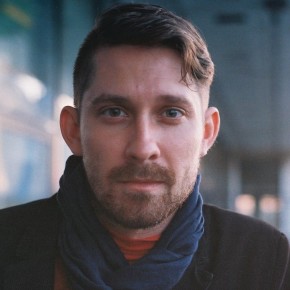 Andrei Kuznetsov [Mobile Utopia Bonfire School and Experiment] is Senior Research Fellow at REC PAST Centre, Tomsk State National Research University, and Associate Professor at Department of Sociology of Volgograd State University. His research interests include actor-network theory, science and technology studies, mobilities research, french pragmatic sociology, urban studies.
Andrei Kuznetsov [Mobile Utopia Bonfire School and Experiment] is Senior Research Fellow at REC PAST Centre, Tomsk State National Research University, and Associate Professor at Department of Sociology of Volgograd State University. His research interests include actor-network theory, science and technology studies, mobilities research, french pragmatic sociology, urban studies.
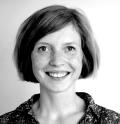 Ditte Bendix Lanng [Mobile Utopia Bonfire School and Experiment] is Assistant Professor at The Technical Faculty of IT and Design, Department of Architecture, Design and Media Technology, Centre for Mobility and Urban Studies.
Ditte Bendix Lanng [Mobile Utopia Bonfire School and Experiment] is Assistant Professor at The Technical Faculty of IT and Design, Department of Architecture, Design and Media Technology, Centre for Mobility and Urban Studies.
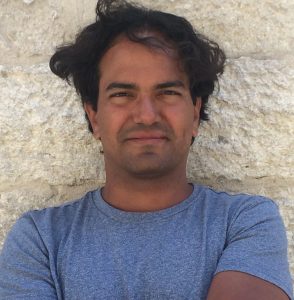 Carlos López Galviz [Mobile Utopia Bonfire School and Experiment] is a Lecturer in the Theories and Methods of Social Futures at Lancaster University. His work looks at futures thinking and future forming through the lens of cities, ruins and infrastructure. He has been a consultant in several planning initiatives in the UK, Europe and Colombia and was in 2014 a visiting scholar at the Shanghai Academy of Social Sciences. His research has been funded by several prestigious institutions, more recently, the collaborative and inter-disciplinary project Reconfiguring Ruins (www.reconfigruins.com), which examined the relationship between the arts, heritage and urban regeneration, and was funded by the Arts and Humanities Research Council in the UK. Carlos has published widely on the history of cities like London and Paris, and the history of technology and infrastructure, including Going Underground: New Perspectives (2013) and Global Undergrounds: Exploring Cities Within (2016).
Carlos López Galviz [Mobile Utopia Bonfire School and Experiment] is a Lecturer in the Theories and Methods of Social Futures at Lancaster University. His work looks at futures thinking and future forming through the lens of cities, ruins and infrastructure. He has been a consultant in several planning initiatives in the UK, Europe and Colombia and was in 2014 a visiting scholar at the Shanghai Academy of Social Sciences. His research has been funded by several prestigious institutions, more recently, the collaborative and inter-disciplinary project Reconfiguring Ruins (www.reconfigruins.com), which examined the relationship between the arts, heritage and urban regeneration, and was funded by the Arts and Humanities Research Council in the UK. Carlos has published widely on the history of cities like London and Paris, and the history of technology and infrastructure, including Going Underground: New Perspectives (2013) and Global Undergrounds: Exploring Cities Within (2016).
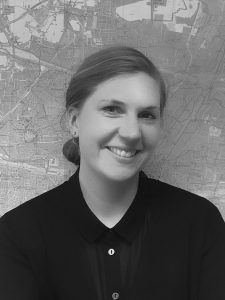 Julie Magelund [Mobile Utopia Bonfire School and Experiment] is Mobil.Lab Fellow and PhD Candidate at the TUM Department of Civil, Geo and Environmental Engineering, Technical University of Munich and the HfWU Nürtingen-Geislingen, Germany.
Julie Magelund [Mobile Utopia Bonfire School and Experiment] is Mobil.Lab Fellow and PhD Candidate at the TUM Department of Civil, Geo and Environmental Engineering, Technical University of Munich and the HfWU Nürtingen-Geislingen, Germany.
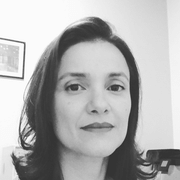 Camila Maciel Campolina Alves Mantovani [Mobile Utopia Bonfire School and Experiment] Universidade Federal de Minas Gerais
Camila Maciel Campolina Alves Mantovani [Mobile Utopia Bonfire School and Experiment] Universidade Federal de Minas Gerais
Camila Dos Santos Moraes [Mobile Utopia Bonfire School and Experiment] is a Lecturer in the Tourism and Heritage Department at Federal State University of Rio de Janeiro (UNIRIO) Rio de Janeiro, RJ, Brazil.
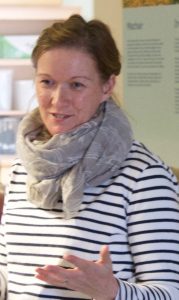 Louise Mullagh [Mobile Experiment] is a PhD Candidate at the Department of Computing and Communications at Lancaster University. Her research explores geographical and social inclusivity in the realm of ‘big’ environmental data, in particular that there is a tendency to overlook people and place. The urban dominates this paradigm, with many rural and remote areas left out as a result. Data is seen as having many answers to complex problems but many people have difficulties understanding what big data are, and in turn are unable to navigate what is often invisible and collected automatically.
Louise Mullagh [Mobile Experiment] is a PhD Candidate at the Department of Computing and Communications at Lancaster University. Her research explores geographical and social inclusivity in the realm of ‘big’ environmental data, in particular that there is a tendency to overlook people and place. The urban dominates this paradigm, with many rural and remote areas left out as a result. Data is seen as having many answers to complex problems but many people have difficulties understanding what big data are, and in turn are unable to navigate what is often invisible and collected automatically.
 Daniel I. Muñoz Zech [Mobile Utopia Bonfire School and Experiment] is PhD Candidate at the Institute of Geography, Edinburgh University.
Daniel I. Muñoz Zech [Mobile Utopia Bonfire School and Experiment] is PhD Candidate at the Institute of Geography, Edinburgh University.
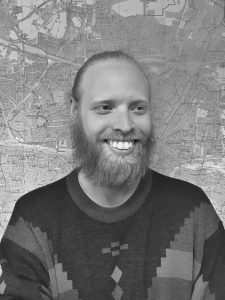 Luca Nitschke [Mobile Utopia Bonfire School and Experiment] is Mobil.Lab Fellow and PhD Candidate at the TUM Department of Civil, Geo and Environmental Engineering, Technical University of Munich and the HfWU Nürtingen-Geislingen, Germany.
Luca Nitschke [Mobile Utopia Bonfire School and Experiment] is Mobil.Lab Fellow and PhD Candidate at the TUM Department of Civil, Geo and Environmental Engineering, Technical University of Munich and the HfWU Nürtingen-Geislingen, Germany.
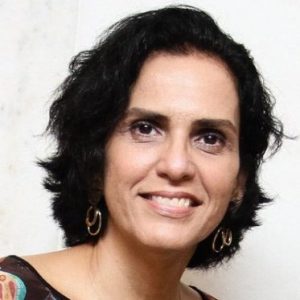 Maria Alice de Faria Nogueira [Mobile Utopia Bonfire School and Experiment] Estacio de Sa University
Maria Alice de Faria Nogueira [Mobile Utopia Bonfire School and Experiment] Estacio de Sa University
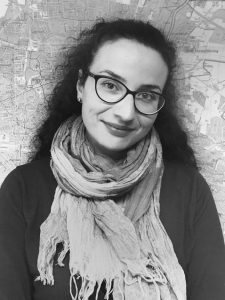 Eriketti Servou [Mobile Utopia Bonfire School and Experiment] is Mobil.Lab Fellow and PhD Candidate at the TUM Department of Civil, Geo and Environmental Engineering, Technical University of Munich and the HfWU Nürtingen-Geislingen, Germany.
Eriketti Servou [Mobile Utopia Bonfire School and Experiment] is Mobil.Lab Fellow and PhD Candidate at the TUM Department of Civil, Geo and Environmental Engineering, Technical University of Munich and the HfWU Nürtingen-Geislingen, Germany.
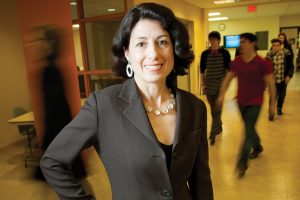 Mimi Sheller [Mobile Utopia Bonfire School and Experiment] is Professor of Sociology and founding Director of the Center for Mobilities Research and Policy at Drexel University. She is founding co-editor of the journal Mobilities; Associate Editor of the journal Transfers: Interdisciplinary Journal of Mobility Studies; and serves on the Scientific Board of the Mobile Lives Forum, SNCF, France. She also serves on the editorial boards of Cultural Sociology and the International Journal of African and Black Diaspora Studies. She has held recent Visiting Fellowships at the Davis Center for Historical Studies at Princeton University (2008-09); Media@McGill in Montreal, Canada (2009); the Center for Mobility and Urban Studies at Aalborg University, Denmark (2009); and the Penn Humanities Forum (on Virtuality) at the University of Pennsylvania (2010-11).
Mimi Sheller [Mobile Utopia Bonfire School and Experiment] is Professor of Sociology and founding Director of the Center for Mobilities Research and Policy at Drexel University. She is founding co-editor of the journal Mobilities; Associate Editor of the journal Transfers: Interdisciplinary Journal of Mobility Studies; and serves on the Scientific Board of the Mobile Lives Forum, SNCF, France. She also serves on the editorial boards of Cultural Sociology and the International Journal of African and Black Diaspora Studies. She has held recent Visiting Fellowships at the Davis Center for Historical Studies at Princeton University (2008-09); Media@McGill in Montreal, Canada (2009); the Center for Mobility and Urban Studies at Aalborg University, Denmark (2009); and the Penn Humanities Forum (on Virtuality) at the University of Pennsylvania (2010-11).
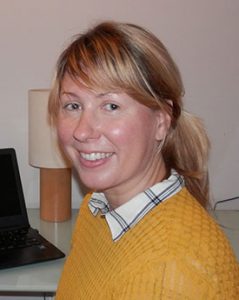 Nicola Spurling [Mobile Experiment] is Lecturer in The Theory and Methods of Social Futures at Lancaster University. Her research explores and develops everyday futures and their implications for energy and transport demand, drawing on futures research and social theories of practice. I am interested in how working lives, daily lives and everyday mobility have changed since 1950. My current focus is on how planning practices make and shape demand for energy and mobility, and I have a particular interest in Garden Cities and New Towns as sites for futures research.
Nicola Spurling [Mobile Experiment] is Lecturer in The Theory and Methods of Social Futures at Lancaster University. Her research explores and develops everyday futures and their implications for energy and transport demand, drawing on futures research and social theories of practice. I am interested in how working lives, daily lives and everyday mobility have changed since 1950. My current focus is on how planning practices make and shape demand for energy and mobility, and I have a particular interest in Garden Cities and New Towns as sites for futures research.
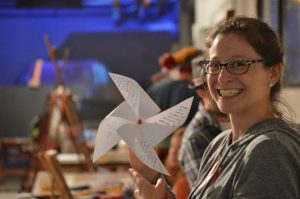 Stephanie Sodero [Mobile Utopia Bonfire School and Experiment] is a Postdoctoral Fellow researching crisis mobilities at Lancaster University’s Centre for Mobilities Research. She traces the mobilities of vital materials, such as blood, required during crises and how such supply chains are impacted by climate change.
Stephanie Sodero [Mobile Utopia Bonfire School and Experiment] is a Postdoctoral Fellow researching crisis mobilities at Lancaster University’s Centre for Mobilities Research. She traces the mobilities of vital materials, such as blood, required during crises and how such supply chains are impacted by climate change.
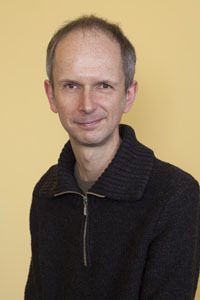 Bronislaw Szerszynski [Mobile Experiment] is Reader in Sociology at Lancaster University. His research draws on the social sciences, humanities, arts and natural sciences to explore the changing relationship between humans, environment and technology. In recent years he has applied this interdisciplinary approach to various environment and technology issues, such as technological innovation (especially biotechnology) and political economy; and urban foodscapes seen in terms of socio-material practices and the moral economy.
Bronislaw Szerszynski [Mobile Experiment] is Reader in Sociology at Lancaster University. His research draws on the social sciences, humanities, arts and natural sciences to explore the changing relationship between humans, environment and technology. In recent years he has applied this interdisciplinary approach to various environment and technology issues, such as technological innovation (especially biotechnology) and political economy; and urban foodscapes seen in terms of socio-material practices and the moral economy.
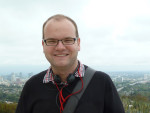 Tauri Tuvikene [Mobile Utopia Bonfire School and Experiment] works as a Researcher at the Centre for Landscape and Culture in Tallinn University. I am carrying out a postdoctoral research project “Urban Walkscapes: Socio-Material Assemblages of Pedestrian Practices and Regulations in Tallinn, Estonia” (2016 – 2018, funded by the Estonian Resarch Council). The project investigates the ways in which pedestrians interact with physical space and various other materialities, as well as how they are both influenced by and influence laws, norms and cultural practices.
Tauri Tuvikene [Mobile Utopia Bonfire School and Experiment] works as a Researcher at the Centre for Landscape and Culture in Tallinn University. I am carrying out a postdoctoral research project “Urban Walkscapes: Socio-Material Assemblages of Pedestrian Practices and Regulations in Tallinn, Estonia” (2016 – 2018, funded by the Estonian Resarch Council). The project investigates the ways in which pedestrians interact with physical space and various other materialities, as well as how they are both influenced by and influence laws, norms and cultural practices.
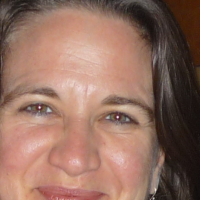 Doerte Weig [Mobile Experiment] is a Movement Researcher and Design Consultant offering unique insights into relations of moving bodies and technology. Movement and the body are the most effective nexus for understanding the world around us, and from this vantage point we can create perfectly tailored experiences, products, and services for our client audiences. My approach can be applied at local or global level. It is derived from heading international corporate change and vision projects as well as from conducting structured anthropological research in the fields of mobilities, organisational transformation, and dance.
Doerte Weig [Mobile Experiment] is a Movement Researcher and Design Consultant offering unique insights into relations of moving bodies and technology. Movement and the body are the most effective nexus for understanding the world around us, and from this vantage point we can create perfectly tailored experiences, products, and services for our client audiences. My approach can be applied at local or global level. It is derived from heading international corporate change and vision projects as well as from conducting structured anthropological research in the fields of mobilities, organisational transformation, and dance.